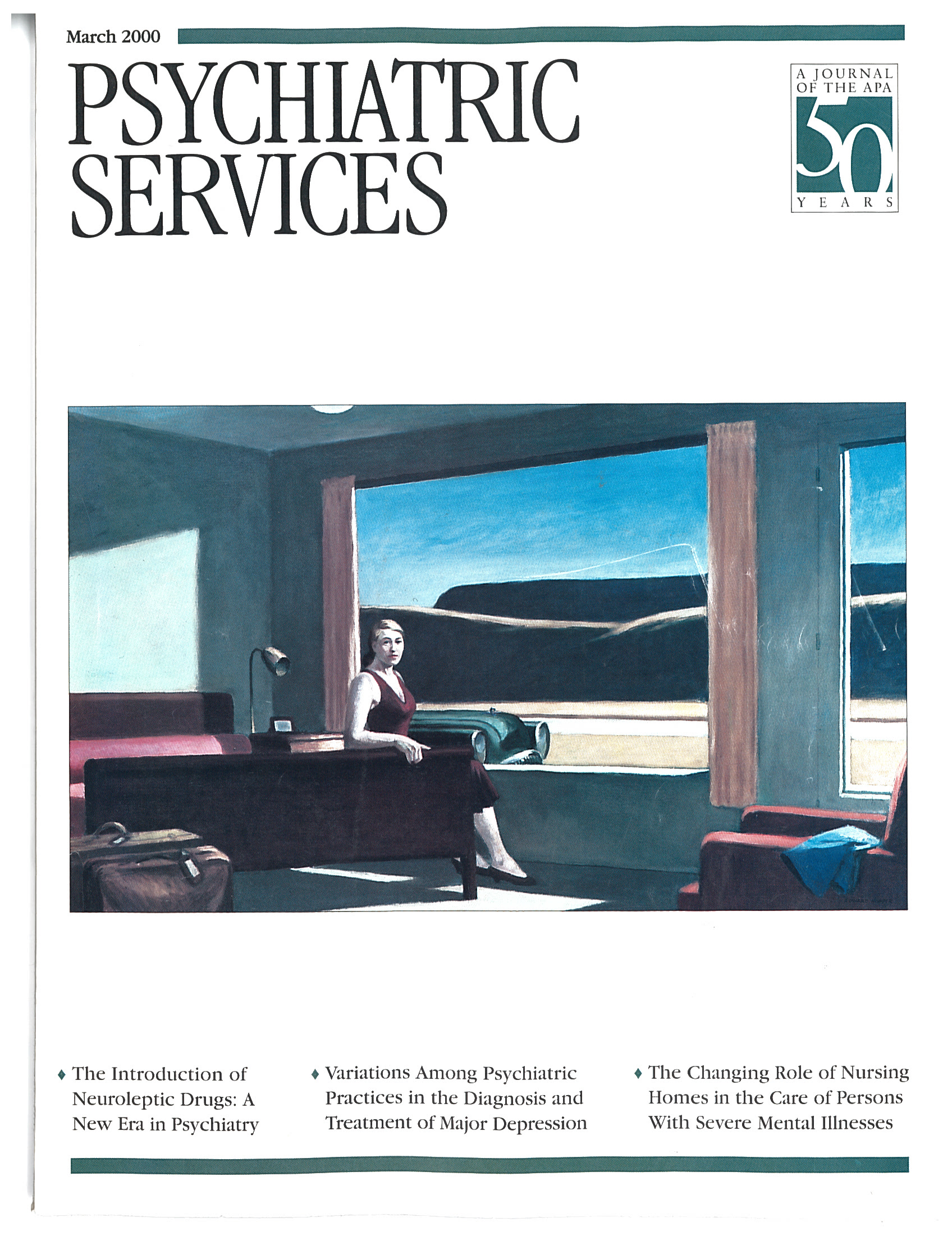Use of Nursing Homes in the Care of Persons With Severe Mental Illness: 1985 to 1995
Abstract
OBJECTIVE: The study examined patterns of care for persons with mental illness in nursing homes in the United States from 1985 to 1995. During that period resident populations in public mental hospitals declined, and legislation aimed at diverting psychiatric patients from nursing homes was enacted. METHODS: Estimates of the number of current residents with a mental illness diagnosis and those with a severe mental illness were derived from the 1985 and 1995 National Nursing Home Surveys and the 1987 and 1996 Medical Expenditure Surveys. Trends by age group and changes in the mentally ill population over this period were assessed. RESULTS: The number of nursing home residents diagnosed with dementia-related illnesses and depressive illnesses increased, but the number with schizophrenia-related diagnoses declined. The most substantial declines occurred among residents under age 65; more than 60 percent fewer had any primary psychiatric diagnosis or severe mental illness. CONCLUSIONS: These findings suggest a reduced role for nursing homes in caring for persons with severe mental illness, especially those who are young and do not have comorbid physical conditions. Overall, it appears that nursing homes play a relatively minor role in the present system of mental health services for all but elderly persons with dementia.



